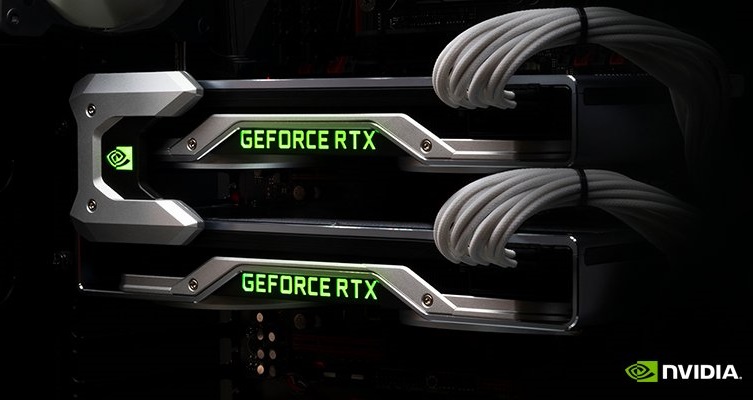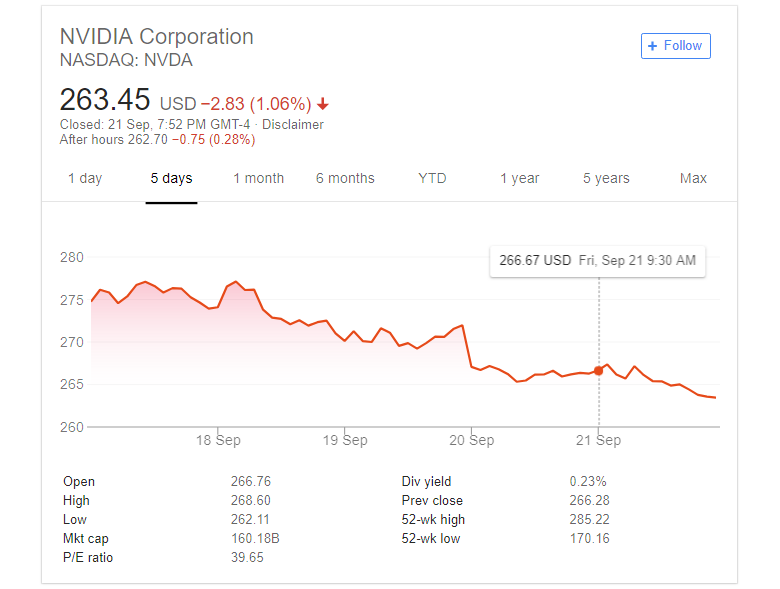Morgan Stanley disappointed by Nvidia’s RTX performance, Shares fall

The reviews of Nvidia’s GeForce RTX 2080 and 2080 Ti are out, and it seems that the GPUs are not doing all well in the public eye. Investors are taking notice as Morgan Stanley says the RTX performance in games is below their expectations.
On average, Nvidia’s new Turing architecture delivers a performance increase of 30% over Pascal. It’s a decent performance upgrade, and a technological one as well. However, when we factor in the price, it’s not really a big upgrade in terms of performance per dollar in regular games.
In addition, as shown in the benchmarks, the company’s next flagship, the RTX 2080 Ti, is unable to hit 60fps at 4K Ultra in numerous triple-A titles. That is something worth noting because Chipzilla advertised the GPU as one that can to deliver such an experience.
Morgan Stanley analyst Joseph Moore was disappointed by the RTX performance as he referred to the mixed reviews of the new GPUs.
“As review embargos broke for the new gaming products, performance improvements in older games is not the leap we had initially hoped for,” Moore said in a note to clients on Thursday.
“Performance boost on older games that do not incorporate advanced features is somewhat below our initial expectations, and review recommendations are mixed given higher price points.”
Unfortunately for Nvidia, that statement caused the company’s stock close down 2.1% that day in the wake of the lifting of the RTX 2080 and 2080 Ti review embargo.

Specifically, Moore noted that the new RTX 2080 has a performance lead of only 3% over the GTX 1080 Ti in 4K. Of course, the comparison slightly differs, but that makes sense considering the higher pricing of the RTX 20 series graphics cards.
According to Moore, the GTX 1080 Ti is almost on par with the more expensive RTX 2080. That’s surprising especially when we consider that Turing has more cores, higher clock rates and higher memory bandwidth.
He expects that the rate of adoption of the new Turing cards will be “slower” than the last generation. This is partly in view of the fact that Nvidia’s RTX ray tracing features explicitly need support from games. As a result, one can expect only a moderate influence of the new GeForce gaming GPUs in the next two quarters.